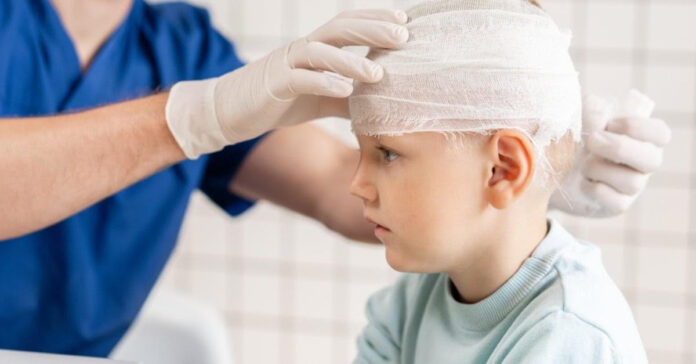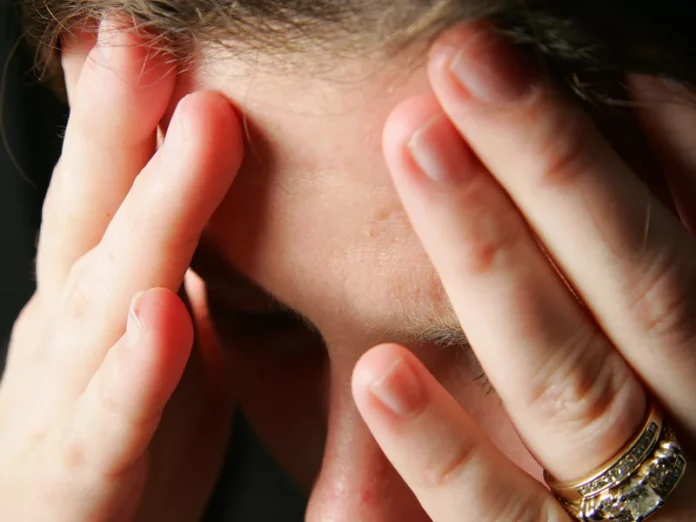Anytime your child takes a hit to the head, whether from sports or an accidental fall, you worry. It’s natural. But as a parent, it’s important to be as educated as possible about concussions so you can better understand and identify potential danger signs.
This blog post will provide an overview of when concussions should be treated, how to help speed up the healing process, and signs that indicate a concussion may have occurred.
Knowing all this information will help put your mind at ease and ensure that you’re providing your child with the best possible care if they suffer a concussion.
When Should You See A Doctor After A Concussion?
Concussions are serious injuries that can have long-lasting effects. It’s important to be aware of the signs and symptoms of a concussion and to seek medical attention right away if you think you or someone else has one.
Most concussions happen when a person is hit in the head, but they can also occur from a fall or a car accident. A concussion can cause the brain to bounce around or twist inside the skull, and this can lead to changes in the brain’s function.
What Are The Different Type Of Concussion?

Concussions can range from mild to severe, and they can have short- and long-term effects. You may see terms such TBI (Traumatic Brain Injury) or ABI (Acquired Brain Injury), and Mild Brain Injury (MTbI).
Let’s start with traumatic brain injury (TBI):
TBI is caused by an external force, such as a car accident or a fall. It can result in long-term problems, including changes in thinking and behavior, and it can even be fatal.
Next is acquired brain injury (ABI):
ABI happens when there’s damage to the brain that’s not caused by an external force. It can be caused by a stroke, a tumor, or even lack of oxygen to the brain. ABI can also result in long-term problems and it, too, can be fatal.
Finally, mild brain injury (MTBI):
MTBI is caused by an external force, but the damage to the brain is not as severe as it is in TBI. MTBI can still result in long-term problems, but the effects are usually not as severe.
What Are The Signs And Symptoms Of A Concussion?

Signs and symptoms of a concussion can appear right after the injury or may not show up for days or weeks.
Some of the short-term effects of a concussion include:
- Headache
- Dizziness
- Nausea or vomiting
- Ringing in the ears
- Blurred vision
- Sensitivity to light or noise
- Fatigue
- Sleep problems
- Irritability
- Sadness
- Changes in mood or behavior
Most people who have a concussion will recover within a few weeks, but some people may have symptoms that last for months or even longer. Specialists in concussion management include occupational therapists and physiotherapists.
Burlington physiotherapy clinics can provide treatment by using evidence-based approaches and specific modalities for better recovery.
On the other end, if the symptoms get worse, make sure to seek medical attention right away. For example:
- Headache that gets worse or does not go away
- Dizziness or balance problems
- Nausea or vomiting that lasts for more than a few hours
- Slurred speech
- Problems with vision, hearing, or smell
- Seizures or convulsions
- Weakness, numbness, or tingling in the arms or legs
- Loss of consciousness, even if it’s just for a few seconds
The sooner a concussion is treated, the better the chances for a full recovery.
How Can You Treat A Concussion?

Occupational therapists or physiotherapists treat concussions by doing a thorough assessment which includes medical history, symptom checklist, and cognitive testing. After the initial assessment, a treatment plan is created that is specific to the individual.
One common treatment for concussions is vestibular rehabilitation. This type of therapy helps with dizziness, nausea, and balance problems. It is often done in combination with other types of treatment, such as a cognitive test.
Cognitive tests are usually done by an occupational therapist or physiotherapist. These tests help to assess thinking, memory, and attention.
If speech difficulties are identified, a speech therapist can be involved as well. They can help with any problems in communication. You can find additional information on this one at NAD.
How Can I Prevent My Child From Having A Concussion?
Wearing a helmet when participating in activities such as biking, skateboarding, football and skiing can help protect against head injuries.
Make sure that the helmet fits properly and is worn correctly. The straps should be buckled so that the helmet sits snugly on the head. The helmet should cover the forehead and sit low on the head, about 2 finger-widths above the eyebrow.
Supervise children when they are participating in activities that could lead to a head injury.
Teach children the importance of using safety gear, such as helmets, and following the rules of the game.
What Is The Urgency?

If you suspect that you or someone else has a concussion, call 911 or go to the nearest emergency room. Do not try to drive yourself or have someone else drive you.
Once you’re at the hospital, a doctor will likely do a physical exam and order tests, such as an MRI or CT scan, to check for bleeds or other damage. The doctor will also ask about your symptoms and how the injury happened.
What Is Next?
Treatment for a concussion usually involves rest and giving the brain time to heal. This means avoiding activities that can make symptoms worse, such as watching TV, using a computer, or texting on a phone.
Your doctor may also recommend over-the-counter pain relievers, such as ibuprofen or acetaminophen, to help with headaches. It’s important not to take aspirin, as this can increase the risk of bleeding.
Regardless, you must go to a concussion clinic. Burlington Physiotherapy – Pillars of Wellness
is specialized in concussion management. Check out pillarsofwellness.ca




